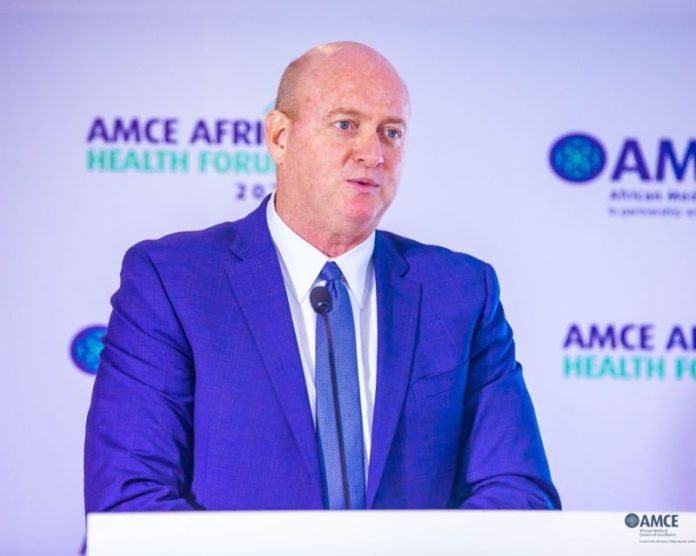The African Medical Centre of Excellence (AMCE) Abuja has unveiled plans to provide world-class healthcare services to indigent Nigerians while addressing the challenges of medical tourism and brain drain in the country. The announcement was made during a facility tour led by AMCE’s Chief Executive Officer, Brian Deaver, in Abuja.
The AMCE, a flagship project spearheaded by the African Export-Import Bank (Afreximbank) in collaboration with King’s College Hospital, London, aims to deliver comprehensive medical services in oncology, haematology, cardiovascular care, and general healthcare. The centre is poised to become a hub for specialised medical treatment, catering not only to Nigerians but also to patients across the African continent.
Deaver described the AMCE as a transformative initiative designed to reshape the future of specialised healthcare in Africa.
“This facility is more than a response to Africa’s healthcare challenges; it is a proactive investment in the well-being of millions, from early diagnostics to advanced treatment and long-term disease management, AMCE will provide a seamless continuum of care that improves patient outcomes, strengthens medical expertise, and retains talent that might otherwise seek opportunities abroad.’’ He said.
To ensure accessibility and affordability, the AMCE Foundation will receive donations to subsidise care for patients unable to afford treatment. These funds will also support capital expansion, research initiatives, and the development of cutting-edge medical infrastructure.
Professor Benedict Oramah, President and Chairman of the Board of Directors of both Afreximbank and AMCE, highlighted the pressing healthcare challenges facing Africa, including the burden of non-communicable diseases, capital flight from medical tourism, and the exodus of skilled healthcare professionals. He emphasised that the AMCE represents a defining moment in Africa’s pursuit of self-sufficiency in healthcare.
“By delivering world-class, life-saving care to over 350,000 patients within its first five years, this facility will ensure that quality healthcare is no longer a privilege reserved for those who can afford to travel overseas,” Oramah stated.
He added that the centre is expected to create 3,000 jobs, stimulate intra-African trade in medical services, and strengthen critical supply chains in pharmaceuticals and healthcare delivery.
The project has garnered strong support from Nigerian government officials, who praised the initiative as a transformative leap for healthcare in the country. Deputy Senate President Senator Barau Jibrin described the AMCE as a testament to Nigeria’s commitment to strengthening its healthcare system.
“The government remains dedicated to supporting initiatives that enhance the well-being of our people. This project reaffirms our commitment to fostering world-class medical infrastructure that will provide accessible and high-quality care for all,” he added.
Secretary to the Government of the Federation, Senator George Akume, echoed these sentiments, noting that healthcare is the backbone of national development.
“The AMCE is a shining example of what strategic investment and collaboration can achieve. It will position Nigeria as a hub for cutting-edge medical services, create jobs, and drive innovation in the sector,” Akume stated.
The AMCE’s long-term vision includes the development of a second 350-bed hospital facility, a medical and nursing school, a medical and sciences foundation, a dedicated research centre, and residential accommodations for patients and healthcare professionals. The centre’s primary goal is to reduce medical tourism by offering advanced procedures such as stem cell transplantation and state-of-the-art treatments for various diseases.
Deaver expressed confidence that the AMCE will commence operations as planned, providing specialised services in cancer care, cardiovascular treatments, and the management of haematological and blood disorders.
“Our focus remains unwavering: building a centre of excellence that not only delivers life-saving care but also drives economic growth, supports local innovation, and reinforces Nigeria’s position as a leading destination for specialised medical treatment,” he said.













